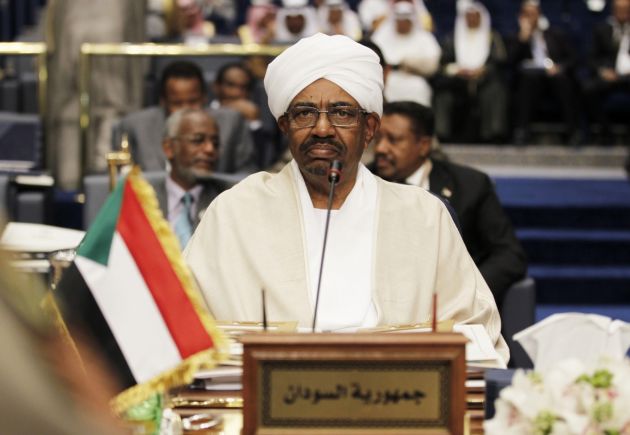In Sudan, an ignored war rages, afflicting Christians

Both warring partners have consistently targeted Sudan's Christian community since the beginning of the Sudan war in acts that can be considered war crimes and crimes against humanity.
Since April 15, 2023, a civil war has engulfed Sudan between the nation's military, the Sudanese Armed Forces (SAF), and the paramilitary Rapid Support Forces (RSF).
This conflict has thrown the country into chaos and devastation, according to The Tahrir Institute for Middle East Policy also known as TIMEP.
More than a year of war in Sudan has displaced over 8.2 million people and inflicted countless tragedies with the war belligerents subjecting the population to "unimagined horrors."
These have included ethnic cleansing, sexual violence, and indiscriminate killing—atrocities that international assessments have well documented, the Tahrir Institute reported in May.
Less talked about but equally horrific is the consistent targeting of the country's Christian community.
On September 26, the SAF launched a major offensive against the paramilitary RSF in Khartoum and Bahri, Anu Maria Joseph wrote in The Hindu newspaper.
Thus, the war, which was quiet for a few months, gained new momentum.
Eighteen months into the civil war, the UN said that more than 20,000 people have been killed.
The International Organization for Migration also recorded 10,890,722 internally displaced persons or IDPs as of October 1.
All ceasefire efforts and peace talks have failed so far.
The latest offensive comes ahead of a new round of U.S.-led ceasefire talks, this time on the sidelines of the UN General Assembly in New York.
An estimated 5.4 percent of Sudan's nearly 50 million people are Christian, while 91 percent are Sunni Muslims.
The current violations against the Christian community are etched in a bleak history of persecution of religious minorities, especially during Omar al-Bashir's 30-year rule.
- Sharia law
Then, a strict legal system based on Muslim Sharia law was imposed on all Sudanese.
Regardless of their religion or belief. Bashir's regime employed many intimidation and harassment approaches, specifically against Christians, including destroying worship places, prosecuting religious leaders, and confiscating religious properties, among other tactics.
The 2011 independence of South Sudan, the predominantly Christian component of the previously unified Sudan, dealt an additional blow to the Christian community that remained in the northern part of the country.
Three months later, Bashir declared Sudan would adopt an entirely Islamic constitution.
Since then, attacks on churches and Christians worsened.
The Sudanese revolution overthrew Bashir in 2019, but his legacy survived within the SAF and the RSF, the two sides fighting the current war.
Both military groups were instrumental to Bashir until his ouster and were significantly involved in atrocity crimes in Darfur and elsewhere.
Their influence on Sudanese politics accelerated post-Bashir as they took part in the 2019 transitional government with civilians before seizing power in the October 2021 coup.
The military component had the upper hand within the transitional government, restricting the changes the Sudanese people rose for.
- Targeting Christians
In the meantime, the targeting of the Christian community during that period did not stop, despite the government's promise to improve the country's human rights situation, according to the TIMEP report.
The transition period saw various violations:
Churches were burned and demolished.
Religious leaders were arbitrarily arrested.
The General Intelligence Service continued interrogating and threatening members of the Christian community.
At the same time, authorities continued denying Christians some rights, including the right to a place of worship, by rejecting requests to build new churches.
The worsening situation for Christians set the scene for war crimes committed against the places of worship, as well as the grave human rights violations against freedom of religion and belief, as soon as the war broke out in April 2023.
More than 165 churches have closed since the start of the war, while others have been destroyed as both the RSF and the SAF seem to have intentionally targeted churches.
On April 17, 2023, only two days after the war started, RSF launched its first attack against a church, the Anglican Cathedral in central Khartoum.
The church was seized after the attack and used as a military base by the RSF after they physically assaulted and forced people sheltering there to leave.
On April 17, 2023, only two days after the war started, RSF launched its first attack against a church in central Khartoum, the Sudanese capital.
The RSF gained ground as the war raged, systematically targeting churches and Christians in the areas they controlled. On May 13, 2023, they attacked Mar Girgis Coptic Church (St. George) in the Al-Masalam neighborhood in Omdurman.
The church was looted and vandalized. Four men, including the priest, were shot in the attack, and another man was stabbed.
The attackers insulted those inside the church, calling them "sons of dogs and infidels," and sought to force them to convert to Islam while threatening the priest with a dagger in his back.